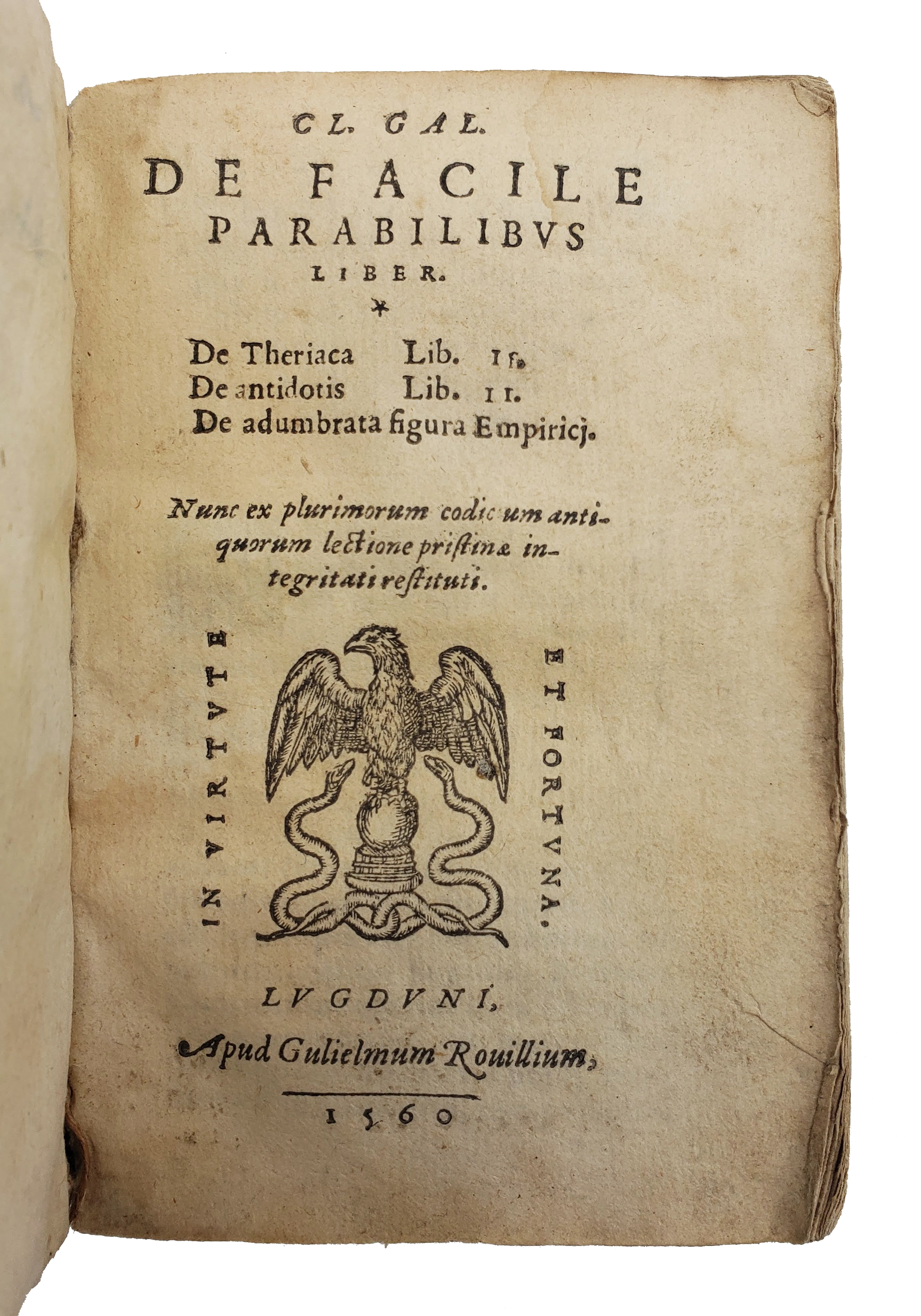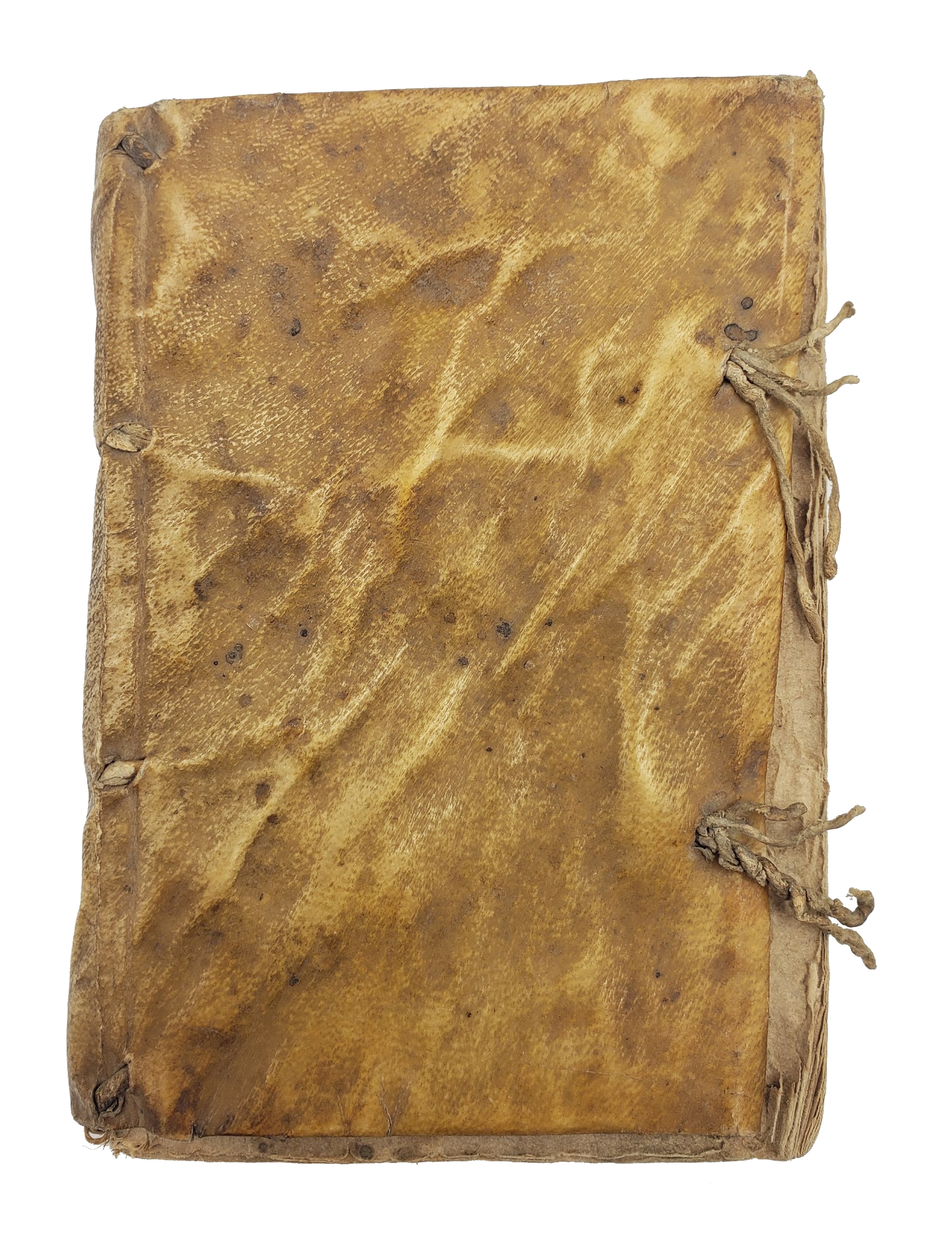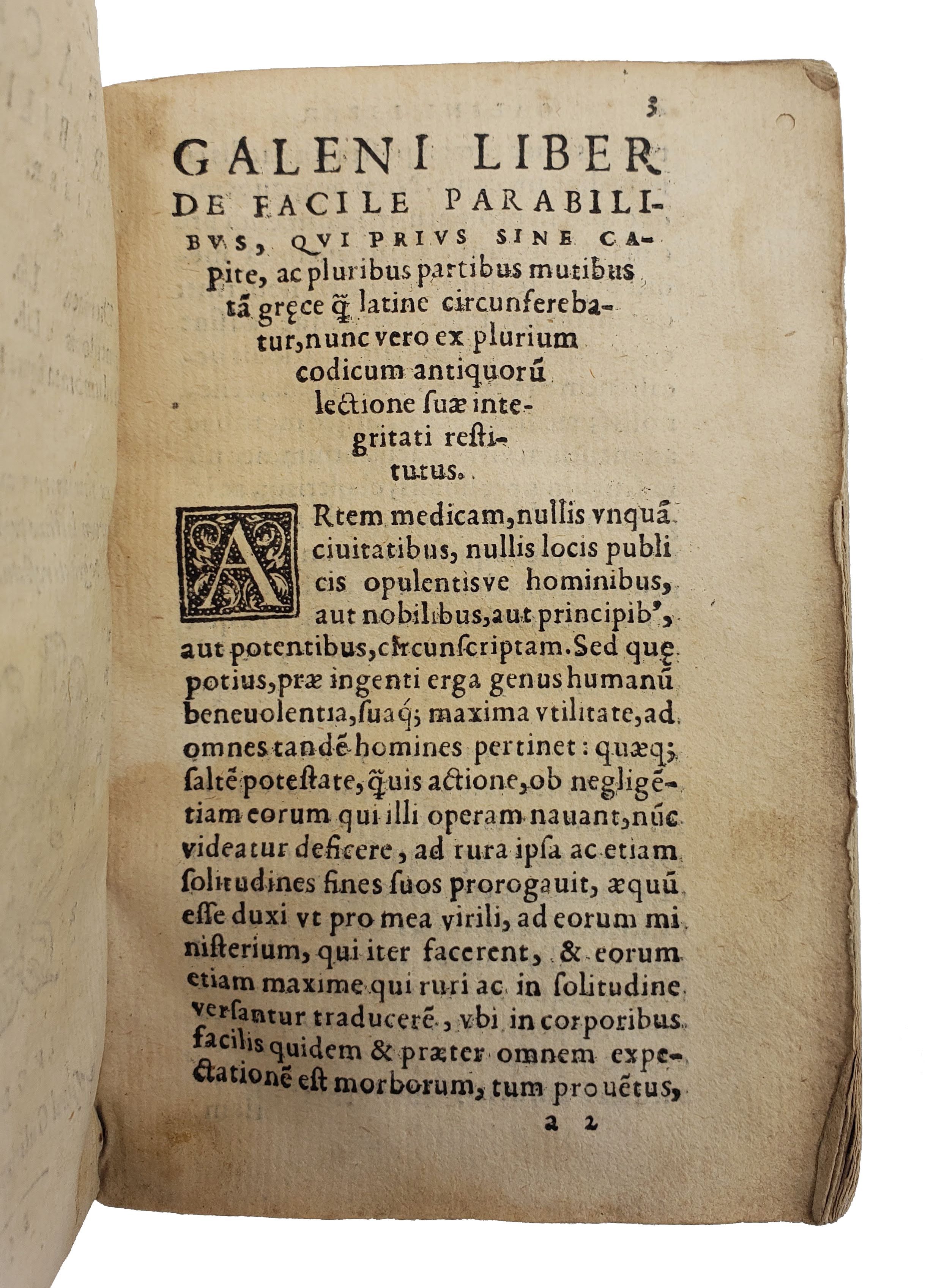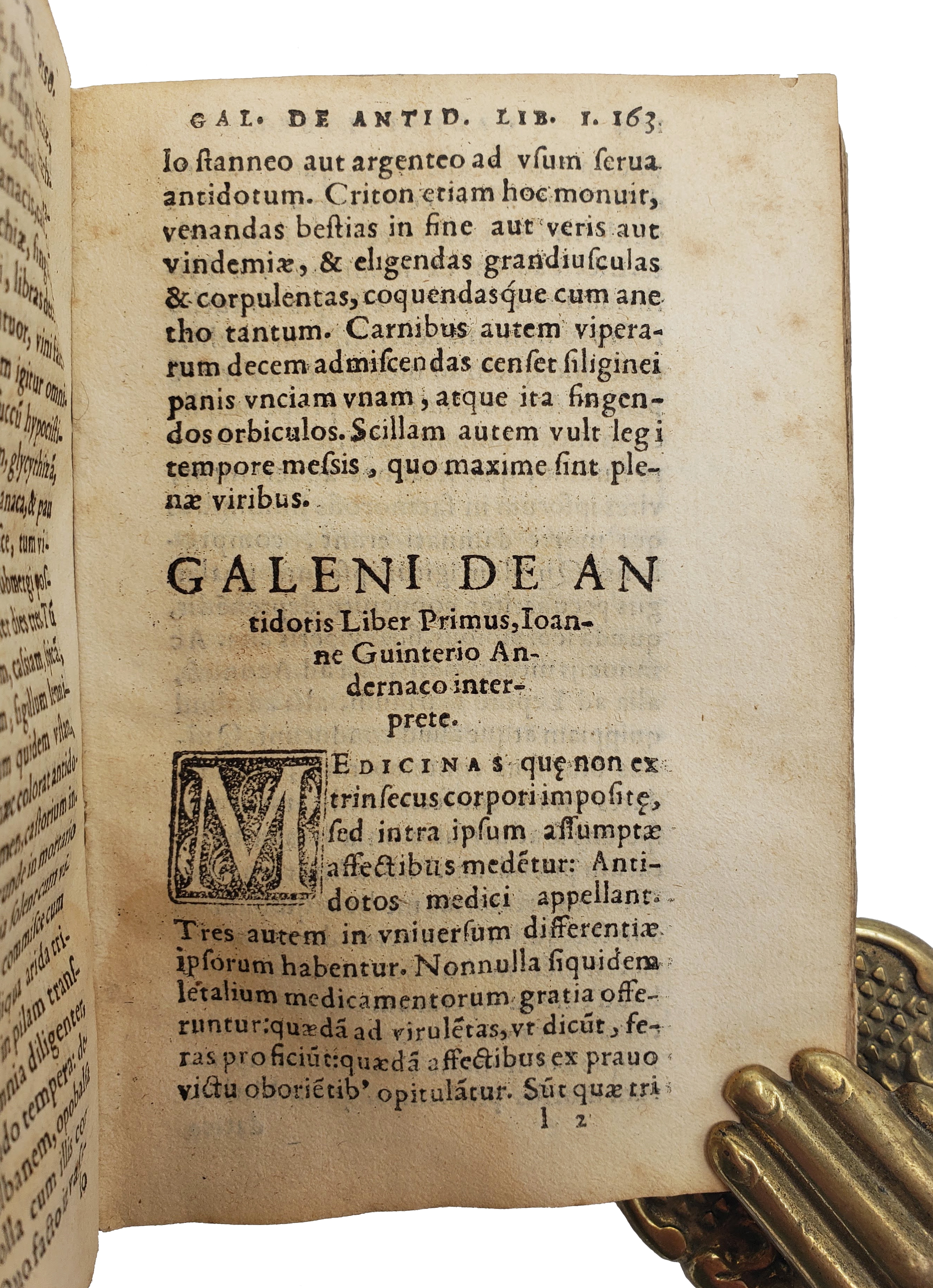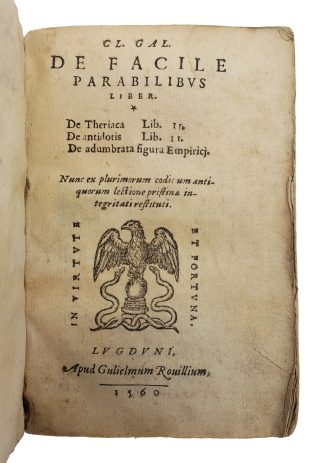GALEN.
POCKET MEDICAL MANUAL
De facile parabilibus liber.
Lyon, G. Rouillé, 1560.£1,250.00
16mo in 8s. pp. 368. Roman letter, little Italic. Printer’s woodcut device to title, decorated initials. Tiny worm hole to upper outer blank corner of few ll. (wormed paper stock), light browning, some light damp patches, intermittent and mainly marginal, to outer margin of few ll. a trifle foxed. A perfectly acceptable, unsophisticated copy in contemporary limp vellum, remains of ties, a bit creased.
Completely original copy of this scarce early pocket-size edition of a very popular collection of three works on medicaments, theriacs and antidotes, and one on diagnosis, all attributed to Galen and a fascinating manual of ancient Greek medicine. This Latin translation of ‘De facile parabilibus’, first published by Hubert Barland in 1533, is based on the text of the Colines edition of 1530; though considered imprecise, the latter continued to be used as Barland could not get hold of another Greek ms. in his native Zeeland (Durling, p.238). The work gathers excerpts on remedies easy to prepare for the most diverse conditions, head to foot, from ointments for an itchy anus to gout, vomit, growths on the chin, toothache, and suffocation after eating mushrooms (treated with a drink made from nardus). Translated by Johann Guenther, the second work, in two parts, focuses on the physiology and workings of theriacs, and sundry ways to prepare them, using ingredients spanning herbs, bite of vipers and other snakes, dung and salts. The third, translated by Camerarius, is concerned with remedies for all conditions, approaching panaceas. It provides an account of the making of antidotes, the general effects of specific ingredients – e.g., bitumen, wine, opobalsamum, honey – and in which cases they should be used, focusing on few, wide-reaching and carefully detailed recipes, such as that for ‘trochisci hedychroi’. The fourth, ‘De Subfiguratione Empirica’, is by Galen the Greek original of which has been lost. It is a most important theory of philosophical ‘induction’, i.e., drawing general conclusions from particular cases – a physician’s most important skill.
Yale, Harvard and NLM copies recorded in US. USTC 152838; Pettegree & Walsby 71489; Gültlingen X, p.128: 474; Durling 1826 (imp.); Baudrier IX, 265-6; Durling, Census, 1560.2. Not in Wellcome or Osler.In stock


